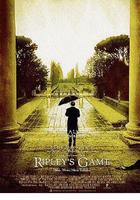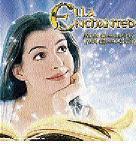
Tom Ripley is a psychopath - there's no other way to describe him - but he's a charming, intelligent, deeply philosophical psychopath, with impeccable tastes in art, music, food, wine, architecture, and timepieces. You just can't help falling for him, and rooting for him to get away with whatever scheme he's working on. Patricia Highsmith's Ripley novels have been adapted five times (to date) for the screen. You may remember The Talented Mr. Ripley (1999) with Matt Damon, or Purple Noon (1960) with Alain Delon-both excellent films based on the same novel (The Talented Mr. Ripley). But with the most recent addition to the Ripley film canon, Ripley's Game (2002) - written and directed by Liliana Cavani, based on the Highsmith novel of the same name - we get Ripley at his psychopathic finest. In this version, John Malkovich plays an older Ripley who has settled down with his beautiful wife, Luisa (Chiara Caselli), in a palatial Italian villa, and spends his time enjoying the spoils of his successful crime career. But he's still Ripley. Consider this scene: At a party being thrown by his neighbour, Trevanny (played by Dougray Scott), Ripley overhears him telling some guests that Ripley has more money than taste; and when he realises that Ripley is standing behind him, Trevanny tries to squirm out of it. Trevanny: 'Oh, hi. You're here, then. Excellent. We were hoping you'd come.' Ripley: 'Why?' Trevanny: 'Well, to ... to add spice to the evening.' Ripley: 'Meaning?' Trevanny: 'You're a bit of a local personality.' Ripley: 'Meaning?' Trevanny: 'People have heard about you.' Ripley: 'Meaning?' Trevanny: 'Nothing. Just ... nothing.' Meaning? Ripley doesn't take insults very well.
A few years previously, Ripley was involved in a successful art scam, and now his victims (gangsters) have finally caught up with him. Ripley's going to have to kill them; but he also sees it as an opportunity to teach Trevanny a lesson in manners. Ripley's 'game' is to entice his squeaky-clean neighbour into committing murder. Featuring one of Malkovich's best performances (and he's had many great ones), Ripley's Game is highly recommended. I leave you with another taste of the talented Mr. Ripley: Trevanny doesn't think he can do the killings and Ripley decides to help him out; but first, Ripley: 'Hold my watch, because if it breaks I'll kill everyone on this train.' You see, he's not just a psychopathic killer. He's also a good neighbour.
Ella Enchanted: 'Enchanting!'

Regular readers may have noticed that there have been no family friendly movies in these reviews, but, to be honest, we have found that good films that kids and adults can enjoy (that aren't already gracing your DVD shelves) are a rarity in movieland. Ella Enchanted (2004) is one of those rarities that might have slipped your attention. In a fairy tale kingdom, all newborns are given a fairy spell, and Ella, played by the adorable Anne Hathaway (of The Princess Diaries fame) is given the 'gift' of obedience by her fairy godmother, Lucinda Perryweather (Vivica A. Fox ) - which means she has to do whatever anyone tells her to. But, other than her mother, no one knows Ella's secret; and Ella grows up into a beautiful young woman with a soft spot for the civil rights of the non-humans in the kingdom. Then her mother passes away, and her father marries a woman with two daughters of her own; and you know how stepmothers and stepsisters can bein fairy tales. Ella Enchanted is a twist on the classic Cinderella story. Ella must cope with the stepfamily (who have discovered her 'gift'), convince the evil Prince Edgar (Cary Elwes of The Princess Bride fame) not to discriminate against the elves, ogres and giants who live in the Kingdom, and win the heart of the charming Prince Charmont (Hugh Dancy). It's not animated, but it is enchanting, and I would put Ella Enchanted up against any of those successful cartoon movies.
Day for Night: 'Love gift to cinema'
Francois Truffaut's 1973 film Day for Night (La Nuit Americain) is perhaps the greatest movie about moviemaking ever made. While fans of the Italian director Fellini and his '8 ?' may beg to differ, what sets 'Day for Night' apart is love: the movie is an unabashed love letter to the cinema. This film is illuminated by the profound connection that Truffaut as an artist feels with his medium. We can't (well, I couldn't) help but be swept along. 'Day for Night' tells the story of the making of a somewhat uninspired film, Meet Pamela. It is not, to say the least, a smooth process. The cast and crew seem to veer from crisis to crisis, all the while teetering on the edge of total chaos. Ferrand, the director (played well by Truffaut) must find a way to hold it all together, all the while faced with an approaching deadline. Truffaut was one of the originators of the Auteur (author) theory and practice of film-making. This approach emphasized the role of the director as the film's 'author', in contrast with the staid and conventional approach of the French cinema of his day (and, of course, our current state of affairs as well). The great tool of the film auteur is illusion, which the title of this movie refers to: 'day for night' is a technique in which camera filters and special film stock (and other tools of the cinematographer's trade) are used to make daytime appear to be night. The movie Day for Night, then, is an insight into the process of movie-making, and its attendant tensions between appearance and reality. None of this is what makes the film great, though. Rather, it's the sense of community which the film creates, and which transcends its particular milieu, and reminds us (if we pay attention) that love cannot be confined to specific objects. Truffaut's love of film is at bottom a love of life, and this movie invites us to participate in it. Other Truffaut films to check out include the more famous The 400 Blows (1959) and Jules and Jim (1962).
- Bruce Alexander & Omar Francis

